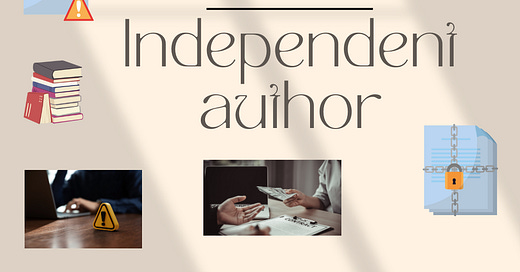"Original” originality, not a copy!
Because all our works are unique and beautiful, let's use our human brain to create, not copy
As an author, originality is very important to me. When an idea for a story or a character comes to mind, it's important to check whether a similar story has already been written and published. Sometimes it has!
In my opinion, if this is the case, don't go ahead and publish the book. That would be plagiarism. We write and we, at least most of us, read a lot. Our brains store hundreds of stories we haven't written, sometimes read thirty years earlier.
An author can therefore be subject to the influence of a work on his or her own imagination. It happens occasionally, and I've certainly experienced it myself at some point in my life. It happens to everyone. But our lucidity and mental clarity must act to curb this risk as soon as it appears. Reasonably speaking, we should stop writing and forget about this text, which was going to be a reproduction reinterpreted to suit us. In spite of this, it remains a copy of an already existing work, albeit, more often than not, an unconscious one.
Others deliberately rewrite or appropriate the originality of a work that has already been published. And this is a real problem. Not just for the plagiarized author, but for the literary world as a whole. Particularly if the book achieves considerable renown or even just a reward.
Yes, because some people don't mind taking over a story written by a colleague in a foreign country, for example, and/or published decades earlier. Of course, they make a few minor adjustments and alterations to the original story, but the basic plot is still there. This author's action is deliberate. In other words, he has deliberately chosen to reproduce an existing work and put his name to it. This is pure plagiarism.
As a reader, it's hard to see this deception. So it's rare for him to point it out. But that's what happened to me recently. I was told about a book recently published by an author, and when I was told the story, I couldn't help thinking that I'd already read a similar story.
This intuition continues to haunt me to this day. So I did some research and found several almost identical stories published in different countries at different times. I still haven't found the book I read perhaps twenty years ago, but I don't despair of finding it one day!
In the meantime, what to do? Report plagiarism to the author? Or at least let him know that I've noticed the plagiarism? Personally, I'm not sure what to make of this situation. Especially as the plagiarized authors won't be informed, since they're in another country and may no longer be alive.
So, in my small way, I'm telling my friends and family so that they know what to expect from this “author”, this word is placed in inverted commas because it is not certain that this person is one, and that would already be an important step towards the truth. In this case, we'll call him a writer, a simple “person skilled in the art of writing” (cf CNRTL).
As an author, you have to produce original writing. Yes, it's a lot of work! I know it does! You have to do research, check that your idea hasn't already been written by someone else, and so on. But isn't working the essence of any profession? No? An author, trained and professional isn't lazy, far from it!
The author must reject the appropriation of an already existing work. This work exists, yes. It's excellent, yes it is. He had the same idea (without ever having read the first one, of course! ;-)), yes, but too bad. Since it already exists, don't copy it. And work to find another idea, nonexistent before this time!
The laziness of a plagiarist may bring him fame and money, but it will particularly foster self-hatred because he will remain aware of his status as a profiteering and, above all, fake and incompetent ‘writer’ unable to invent what doesn't already exist. And that is not desirable for anyone.
Follow me here.




